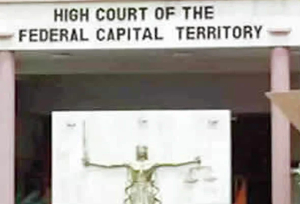- AS MILLS SEEKS TO CUT COST
Kwabena Adu Koranteng
“Yesterday, the Finance Minister told us that savings made from the rationalisation of ministries from 27 to 23 will add up to GH¢4 million. Yet, the most significant budget increase in this year’s budget is on expenditure for the Presidency,” observes Ato Mensah, a research analyst at the Danquah Institute. “Money for Office of Government Machinery shoots up 163 per cent – from GH¢110m in 2008 to GH¢290m this year.”
Mr Mensah says that is an increase of GH¢180m, compared to the additional GH¢70 projected savings that President JEA Mills expects to make from cutting down on protocol spending, foreign travels, seminars, etc. Though the budget was described as “Investing in a Better Ghana”, analysts and members of the opposition have described the amount of investment expected to make Ghana and Ghanaians better as “very modest, disappointing and offering very little new ideas.”
For example, total government income (or receipts) for this year is expected to be GH¢9.8 billion - a mere 2.7% more than what was raised last year, GH¢9.5bn. “This is well below the 15.3% average inflation target for 2009,” Mr Mensah said, pointing out that the New Patriotic Party managed to increase income by 57.8% from 2007 to 2008.
Reading the 2009 budget yesterday, Kwabena Duffour said, projected total revenue at GH¢5.9bn, a 9.7% increase on last year’s GH¢4.3bn, which was itself a 30% increase on the 2007 revenue.
Even the President’s major campaign promise to “drastically” cut down fuel prices only led to a 20 pesewas reduction on a gallon of petrol. Thursday, Parliament passed the Customs & Excise (Petroleum Taxes and Petroleum Related Levies) (Amendment) Act, 2009. which reduced excise duty on the prices of petroleum products.
Parliament also did away with the Spcial Impact Mitigating Levy. The duty on premium petrol is reduced from 7.18 pesewas per litre to 2.78p/ltr. Duty on gas oil is now 1.8p/ltr from 6.2p/ltr. Kerosene now attracts a levy of 1.03p/ltr, down from 3.99p/ltr.
Duty on residual oil goes down from 3.29p/ltr from 5.20p/ltr. Marine gas oil (pre-mix) has a new excise duty of 0.29p/ltr from 3.99p/ltr. Liquefied petroleum gas, from 7.22p/ltr to 0.72p/ltr. The reductions, according to the Majority side, was to “reduce poverty in the country.”
But, the Minority disagreed, calling it too minimal and unlikely to have any appreciable impact in the lives of Ghanaians. Former Minister of State of Finance, Anthony Osei Akoto, said it would lose the exchequer GH¢5m a month. But, that would mean about GH¢60m a year that would have gone into the School Feeding Programme, National Youth Employment Programme and other social interventions which may be more meaningful to the affected people. Constrained by its manifesto promise not to increase direct taxes, the government will however increase road tolls and community taxes, such as Property Rates and market tolls are expected to rise, brining in an additional GH¢8.2m. Vehicle registration fees will also go up.
Air tickets will go up, too.
Government says it needs the money to improve mass transit in the country and to support “general revenue needs”. The airport tax for international travel (outside of West Africa) will be increased from $50 to $75. This is estimated to bring in GH¢4.8m.
Also, Government will restore the import duties on rice, wheat and cooking oil which were removed following the height of the food crises last year. This is expected to GH¢43m to revenue.
Though the Finance Minister chose, in his highlights, to focus on the weaknesses of the economy inherited from the Kufuor administration, the statistics in the 300-page full budget statement show real growth in important areas of the economy.
For example, the industrial sector grew by 8.3%, bigger than the 6.9% growth in the services sector.
The construction sector grew by 14%, and manufacturing by 4%. The agricultural sector saw the highest growth in the last 3 years, with crops (excluding cocoa) and livestock growing by 5.5%, and cocoa at 5%. The figures show that, including divestiture receipts, the budget deficit was 11.5% of GDP in 2008. The government projects an overall budget deficit (including divestiture receipts) of 9.4 of GDP.
While provisional figures put GDP growth for last year, at least, at 6.2%, the NDC projects a lower growth rate of 5.9% for 2009, the first time in 9 years that growth increase for any year would be lower than the preceding one. Government will, in the course of the year, review current employment strategies and concurrently transform the National Youth Employment Programme (NYEP) into a permanent, better funded employment agency, the Youth Employment Service. Though, no details were given on whether the scheme will be expanded to take on more employees, the government promises to “surcharge companies, that bring in staff that could be available locally.”
Mindful of the country’s history with indebtedness, the Mills administration promises to create a ‘Sinking Fund’ to ensure repayments of loans, such as the $750m sovereign bond, which is redeemable in 2017.
The government also intends to deal with the global financial crisis and its concomitant credit crunch by being vigilant on individuals and companies who breach the Foreign Exchange Act and smuggle monies out of the country. It also intends to review and renegotiate the mining laws and agreements which allow foreign firms to repatriate much of their income. Source: The Statesman
General News of Sunday, 8 March 2009
Source: Statesman












